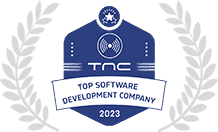In today’s fast-paced digital landscape, businesses are constantly searching for solutions to enhance productivity and streamline operations. One such solution is NetSuite, an all-in-one cloud-based ERP (Enterprise Resource Planning) system that has transformed how companies manage their business processes. This article explores the top 10 benefits of implementing NetSuite for your business and how it can drive growth, efficiency, and scalability.
1. Cloud-Based Accessibility: Anytime, Anywhere
With NetSuite, your business can access its ERP system from any location, at any time, as long as there is an internet connection. This cloud-based solution provides flexibility and convenience, ensuring you and your team remain connected, whether working remotely or traveling.
Why this matters:
- Remote work capabilities enhance productivity.
- Real-time updates improve collaboration.
- No need for physical servers, reducing IT maintenance costs.
NetSuite’s architecture ensures you always have access to the latest updates and security patches without manual intervention, making it a seamless solution for businesses of all sizes.
2. Real-Time Data and Reporting
Data drives decision-making, and with NetSuite’s real-time reporting features, you get up-to-the-minute insights into every aspect of your business operations. This feature enables better decision-making, as all data—financials, inventory, and customer information—is updated instantly.
Benefits of real-time data:
- Faster and more informed decisions
- Better forecasting and trend analysis
- Immediate access to performance reports
Additionally, custom dashboards and KPIs (Key Performance Indicators) allow you to track what’s most important to your business.
3. Enhanced Financial Management
NetSuite’s financial management tools offer comprehensive solutions to help you manage your accounting, billing, and revenue recognition processes more effectively. This benefit is particularly valuable for companies operating in multiple countries or dealing with complex financial structures.
Key features include:
- Automated billing and invoicing
- Multi-currency support for global businesses
- Real-time visibility into financial performance
These tools improve accuracy, compliance, and reporting efficiency, ensuring that your financials are always up to date.
4. Scalability to Support Business Growth
One of the standout benefits of NetSuite is its ability to scale with your business. Whether you’re a startup or an enterprise, NetSuite ERP can adapt to your changing needs, making it a long-term solution for businesses looking to grow.
Scalability includes:
- Adding new modules as your needs evolve
- Supporting multiple business units and subsidiaries
- Handling increased transaction volumes with ease
As your business expands, NetSuite grows with you, eliminating the need for costly software migrations.
5. Improved Customer Relationship Management (CRM)
Customer satisfaction is critical to success, and NetSuite’s CRM functionality helps you build and maintain stronger relationships with your clients. By integrating sales, marketing, and support into one platform, you can ensure that your teams have the information they need to provide personalized service.
Advantages of NetSuite CRM:
- Comprehensive customer data in one place
- Automation of marketing campaigns and lead nurturing
- Better customer service with a 360-degree view of interactions
With a complete view of customer activity, your business can make data-driven decisions to improve engagement and retention.
6. Streamlined Supply Chain Management
Efficient supply chain management is crucial for businesses that rely on inventory, manufacturing, or logistics. NetSuite’s SCM module helps you manage suppliers, track inventory, and optimize order fulfillment, reducing operational bottlenecks and enhancing profitability.
How it helps:
- Optimized inventory levels to prevent stockouts
- Real-time tracking of orders and deliveries
- Automated procurement and demand planning
With improved visibility into your supply chain, you can anticipate and address potential issues before they affect your bottom line.
7. Robust E-commerce Integration
NetSuite offers built-in e-commerce solutions that allow businesses to manage both online and offline operations within a single system. This integration helps businesses create seamless customer experiences across all channels, improving customer satisfaction and increasing sales.
Key features include:
- Unified order management across all channels
- Real-time inventory updates
- Personalized shopping experiences through data-driven insights
Whether you operate a brick-and-mortar store or an online business, NetSuite can streamline your operations to provide a consistent experience for your customers.
8. Automated Workflow and Business Processes
Automation is at the core of NetSuite’s functionality. By automating repetitive tasks and workflows, businesses can save time and reduce the risk of errors. From financial approvals to customer follow-ups, NetSuite’s automation tools streamline operations across departments.
Automation capabilities include:
- Configurable workflows for approvals, invoicing, and billing
- Automated email and alert systems for timely responses
- Reduced manual data entry, minimizing human error
This level of automation allows businesses to focus on higher-value tasks, increasing overall efficiency and output.
9. Advanced Security and Compliance
Security is a top priority for businesses, especially when handling sensitive data like financials or customer information. NetSuite provides advanced security features, including role-based access, data encryption, and automated backups, ensuring your business meets compliance standards.
Security features include:
- Two-factor authentication (2FA)
- Role-based permissions to restrict access
- Data encryption to protect sensitive information
NetSuite also complies with international data regulations, including GDPR and SOC 1, ensuring your business stays protected from potential risks.
10. Cost-Efficiency and Return on Investment (ROI)
While implementing a new ERP system may seem like a significant investment, the long-term benefits of NetSuite far outweigh the initial costs. By streamlining operations, reducing manual labor, and improving decision-making, NetSuite provides a clear ROI.
Cost benefits include:
- Reduced IT costs through cloud-based infrastructure
- Fewer errors and less manual rework
- Faster time to market with efficient processes
Over time, businesses can expect increased profitability and reduced overhead, making NetSuite a smart investment for long-term growth.
20 FAQs About NetSuite Implementation
1. What is NetSuite ERP?
NetSuite is a cloud-based enterprise resource planning software that helps businesses manage various functions like accounting, inventory, CRM, and e-commerce.
2. How much does NetSuite cost?
NetSuite pricing depends on the number of users and specific modules required for your business. It’s a subscription-based service.
3. Is NetSuite suitable for small businesses?
Yes, NetSuite scales to meet the needs of both small businesses and large enterprises.
4. Can NetSuite handle multi-currency transactions?
Yes, NetSuite supports multi-currency transactions, making it ideal for global businesses.
5. How secure is NetSuite?
NetSuite offers advanced security features, including data encryption and role-based access, to protect sensitive information.
6. Does NetSuite integrate with other software?
Yes, NetSuite integrates with a wide range of third-party applications, including CRM, e-commerce, and payroll software.
7. How long does NetSuite implementation take?
Implementation times vary based on business complexity but typically range from a few months to a year.
8. What industries use NetSuite?
NetSuite is used across industries, including manufacturing, retail, healthcare, and services.
9. What are NetSuite’s main modules?
NetSuite offers modules for financials, inventory, supply chain, CRM, e-commerce, and more.
10. Does NetSuite support mobile access?
Yes, NetSuite offers mobile access, allowing users to manage their business on the go.
11. Can I customize NetSuite?
Yes, NetSuite is highly customizable, allowing businesses to tailor workflows, reports, and dashboards.
12. What is NetSuite OneWorld?
NetSuite OneWorld is a version designed for global businesses with multi-subsidiary management needs.
13. Is training required for NetSuite?
Yes, training is recommended to maximize the benefits of NetSuite’s features.
14. Does NetSuite offer reporting tools?
NetSuite provides robust reporting and analytics tools with customizable dashboards and KPIs.
15. How does NetSuite help with compliance?
NetSuite supports compliance with global accounting standards and data regulations such as GDPR.
16. What is the ROI of NetSuite?
Businesses typically see ROI through improved efficiency, reduced costs, and better decision-making.
17. Is NetSuite difficult to implement?
While the implementation process requires careful planning, NetSuite’s professional services team can assist in streamlining it.
18. Does NetSuite handle payroll?
Yes, NetSuite can manage payroll, or it can integrate with payroll systems.
19. Can I upgrade NetSuite easily?
Yes, NetSuite upgrades are managed automatically as part of the cloud service.
20. What support is available for NetSuite users?
NetSuite offers extensive support, including documentation, online training, and a dedicated customer service team.
- How to Optimize Inventory Management with NetSuite - October 4, 2024
- Best Practices for Customizing NetSuite to Meet Business Needs - October 4, 2024
- How to Successfully Migrate Your Business Data to NetSuite - October 4, 2024




















